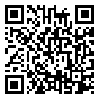یکشنبه 11 آبان 1404
[Archive]
دوره 11، شماره 4 - ( 7-1402 )
جلد 11 شماره 4 صفحات 306-297 |
برگشت به فهرست نسخه ها
Download citation:
BibTeX | RIS | EndNote | Medlars | ProCite | Reference Manager | RefWorks
Send citation to:



BibTeX | RIS | EndNote | Medlars | ProCite | Reference Manager | RefWorks
Send citation to:
Vosoughi Motlagh A, Kamjou S, Etemaad J. Predicting Body Image Concerns, Social Isolation, and Mood by the Amount of Social Media Addiction. PCP 2023; 11 (4) :297-306
URL: http://jpcp.uswr.ac.ir/article-1-873-fa.html
URL: http://jpcp.uswr.ac.ir/article-1-873-fa.html
Predicting Body Image Concerns, Social Isolation, and Mood by the Amount of Social Media Addiction. Practice in Clinical Psychology. 1402; 11 (4) :297-306
چکیده: (3766 مشاهده)
Objective: Internet usage is widely increasing among the new generation, shaping a crucial aspect of people’s lives. Social media use can influence body image concerns, social isolation, and social mood. This study aims to assess body image concerns, social isolation, and mood based on the amount of social media use.
Methods: This study was conducted using a descriptive and correlational method. The study population included all people aged between 20 and 40 years in Shiraz City, Iran, among which 311 people (191 women and 119 men) were selected by the convenience sampling method. The tools used in this study were the body image concerns inventory (BICI, 2005), the social isolation assessment standard questionnaire (SIASI, 2013), the positive and negative affect schedule (PANAS, 1988), and the social media addiction scale (SMAS_AF, 2017). Correlation coefficients (using the SPSS software) and structural equation modeling analysis (using AMOS statistical software) were employed to investigate the variables of the social isolation prediction model.
Results: The results of the study showed that mood (β=0.15, P=0.007) and use of social media (β=0.19, P=0.0001) can predict social isolation with the mediating role of body image concerns (β=0.18, P=0.001). The results showed that the mood and use of social media can predict social isolation both directly and with the mediation of body image concerns.
Conclusion: Based on the results of this study, mood, and use of social media can predict social isolation with the mediating role of body image concerns. Negative moods can make people sensitive to their body image. People have a distorted perception of their body image and this concern leads to social isolation.
Coresponding author: Afsaneh Vosoughi Motlagh, E-mail: Afsanehvosoughi@gmail.com
Methods: This study was conducted using a descriptive and correlational method. The study population included all people aged between 20 and 40 years in Shiraz City, Iran, among which 311 people (191 women and 119 men) were selected by the convenience sampling method. The tools used in this study were the body image concerns inventory (BICI, 2005), the social isolation assessment standard questionnaire (SIASI, 2013), the positive and negative affect schedule (PANAS, 1988), and the social media addiction scale (SMAS_AF, 2017). Correlation coefficients (using the SPSS software) and structural equation modeling analysis (using AMOS statistical software) were employed to investigate the variables of the social isolation prediction model.
Results: The results of the study showed that mood (β=0.15, P=0.007) and use of social media (β=0.19, P=0.0001) can predict social isolation with the mediating role of body image concerns (β=0.18, P=0.001). The results showed that the mood and use of social media can predict social isolation both directly and with the mediation of body image concerns.
Conclusion: Based on the results of this study, mood, and use of social media can predict social isolation with the mediating role of body image concerns. Negative moods can make people sensitive to their body image. People have a distorted perception of their body image and this concern leads to social isolation.
Coresponding author: Afsaneh Vosoughi Motlagh, E-mail: Afsanehvosoughi@gmail.com
نوع مطالعه: پژوهشي |
موضوع مقاله:
رويكرد شناختي رفتاري
دریافت: 1401/11/11 | پذیرش: 1402/2/23 | انتشار: 1402/8/6
دریافت: 1401/11/11 | پذیرش: 1402/2/23 | انتشار: 1402/8/6
| بازنشر اطلاعات | |
 |
این مقاله تحت شرایط Creative Commons Attribution-NonCommercial 4.0 International License قابل بازنشر است. |



